Media
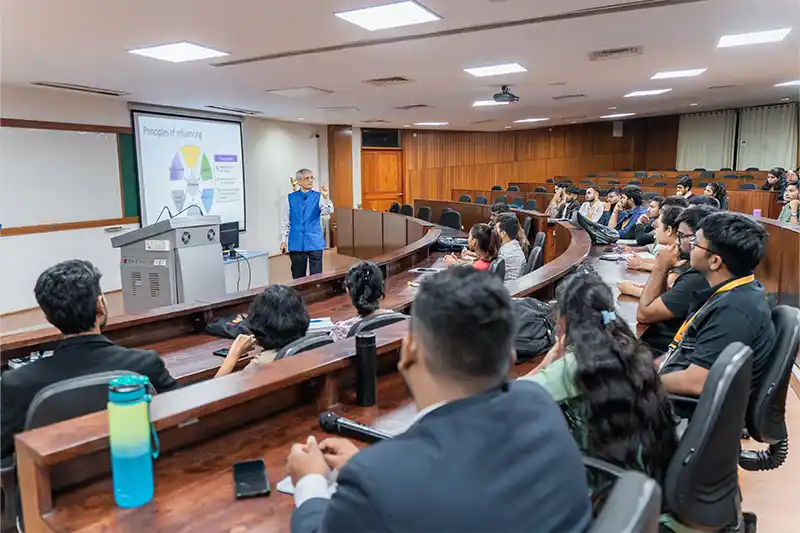
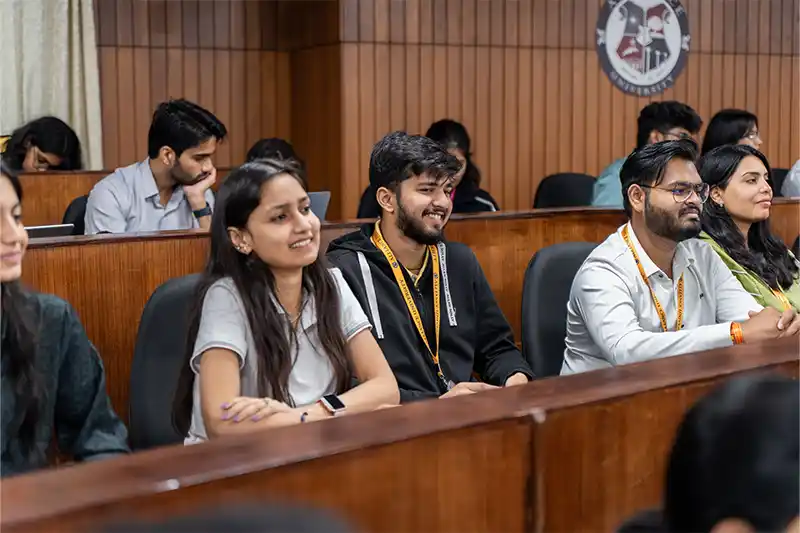
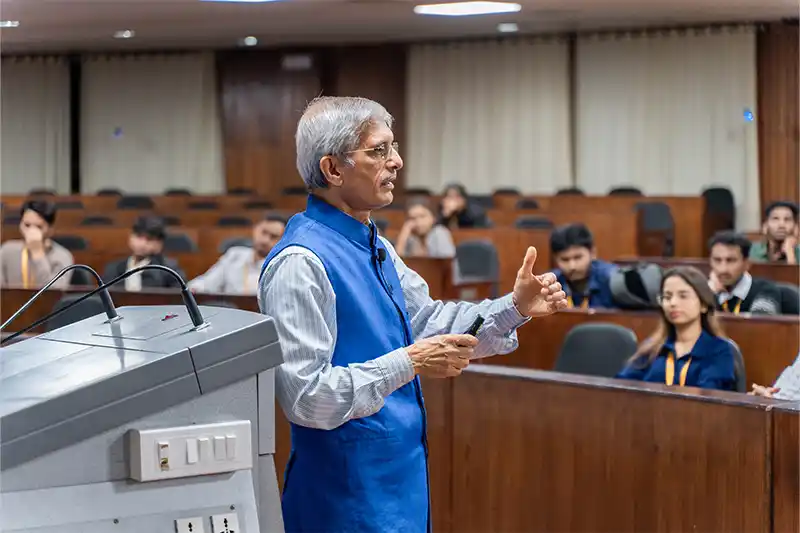
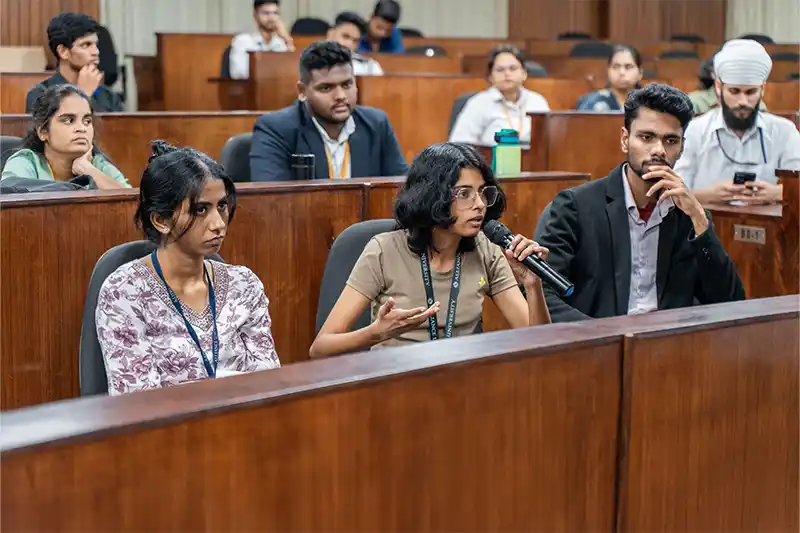
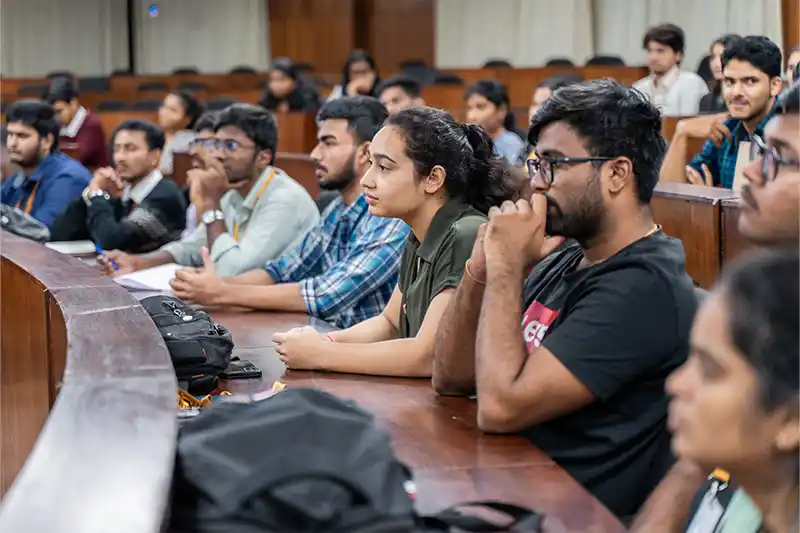
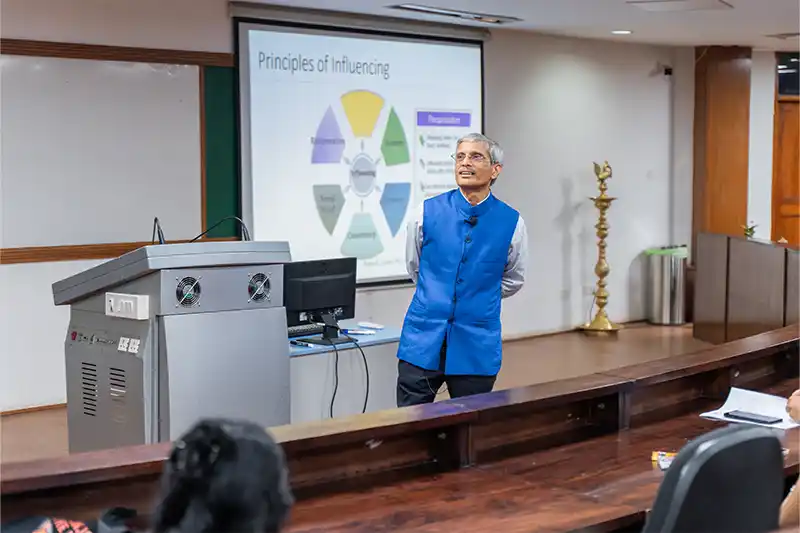
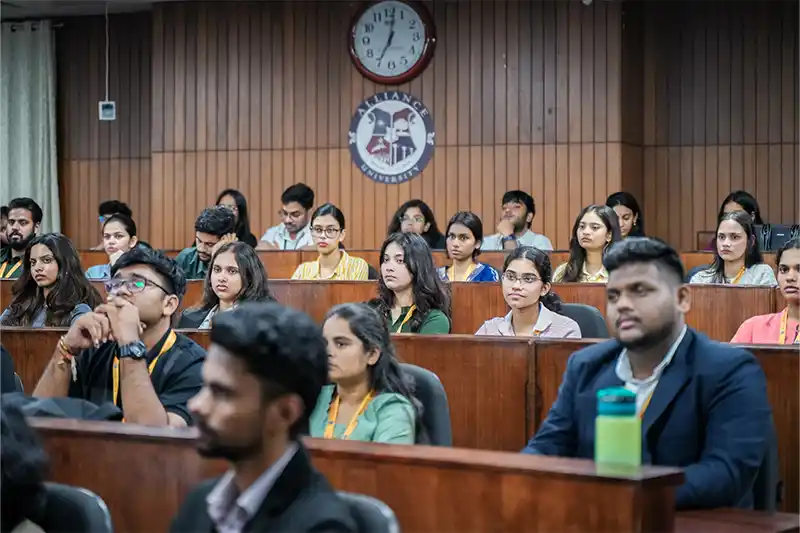
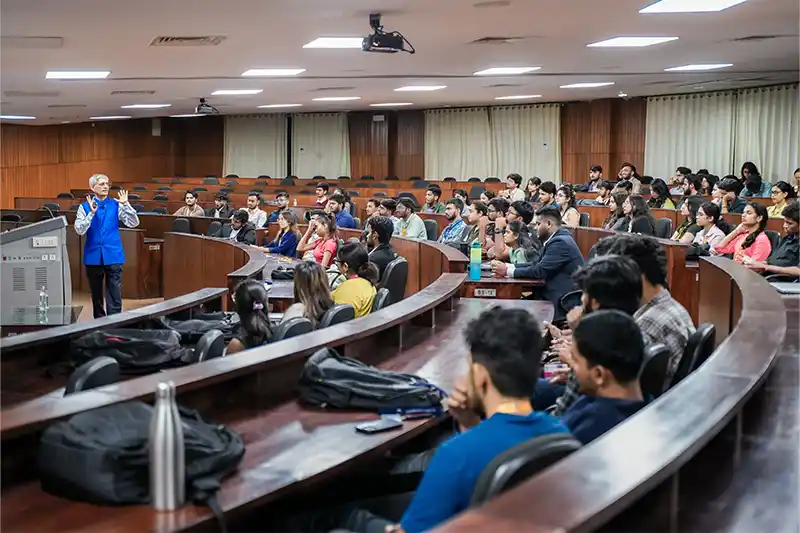
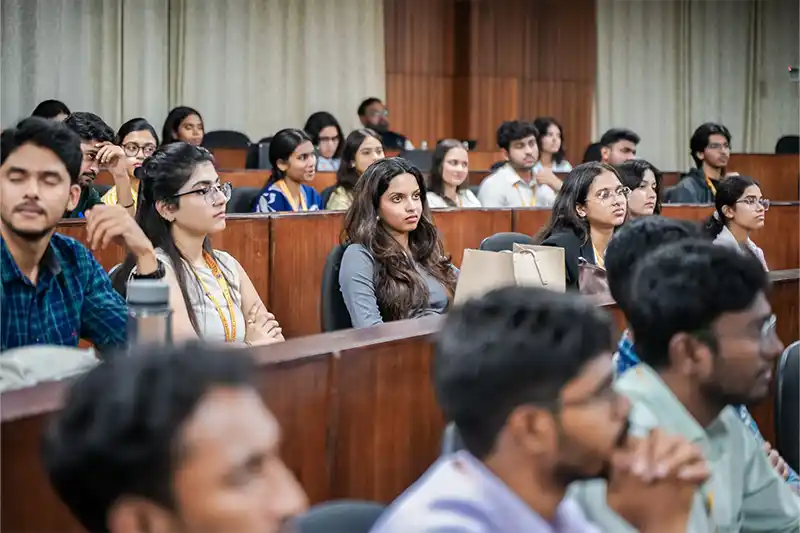
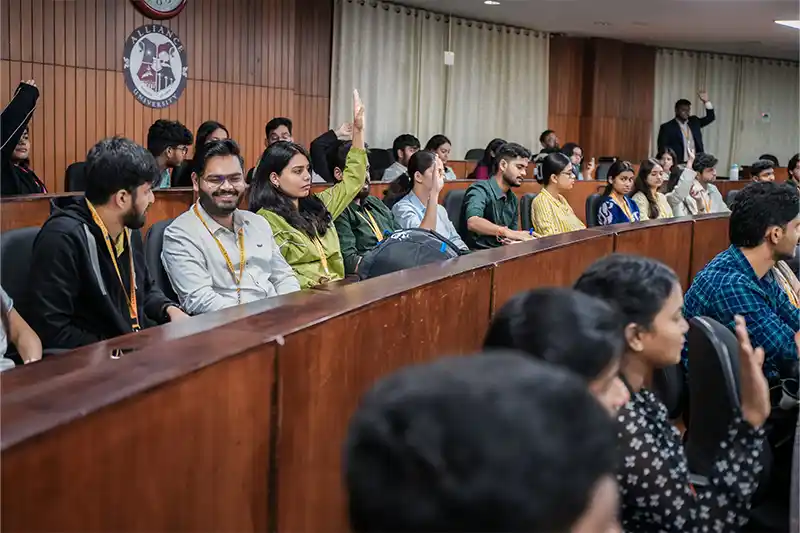
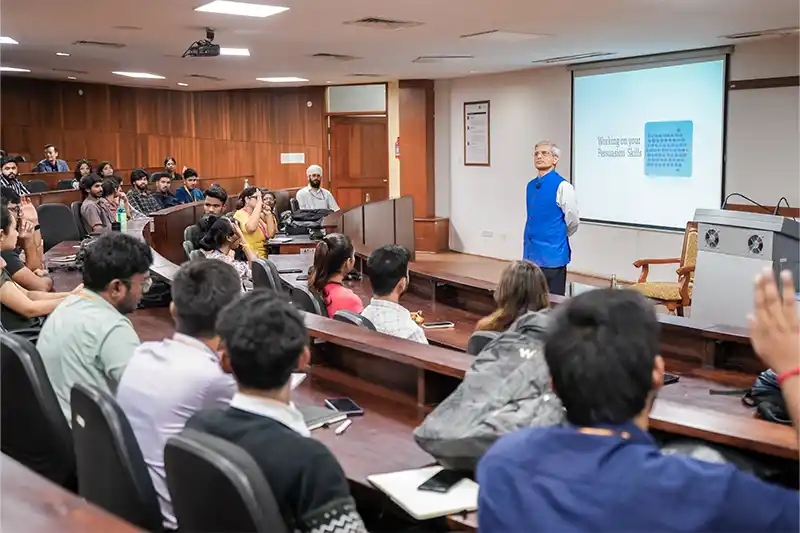
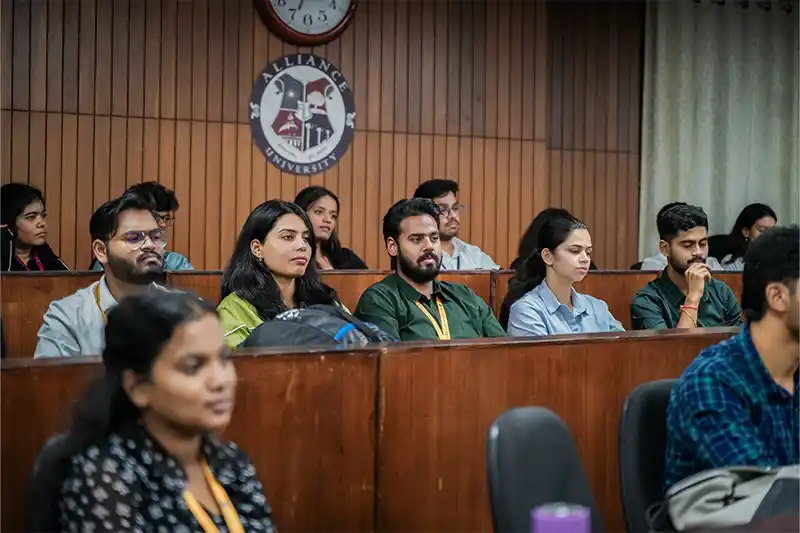
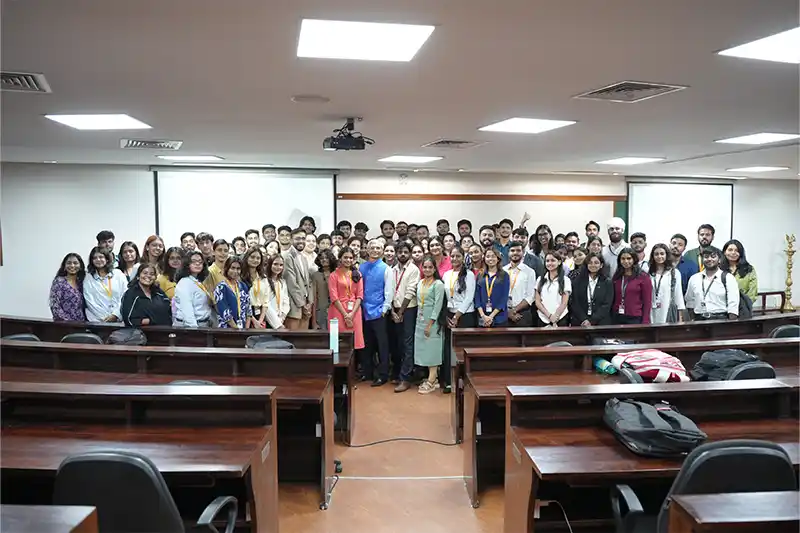
Alliance University had the privilege of hosting Mr. Ashutosh Vaidya for an engaging session on “Speak Less, Close More: The Psychology Behind Powerful Persuasion.” The event was part of Mehfil-e-Corporate, an exclusive initiative that connects distinguished corporate leaders with the student community to create opportunities for dialogue, learning, and inspiration.
The Power of Persuasion
In his talk, Mr. Vaidya explored persuasion not simply as a tool for closing deals, but as a process rooted in clarity, trust, and influence. He explained that effective communication often requires saying less, while listening with empathy helps build confidence and genuine trust. By distinguishing between hearing and listening, he emphasised that true listening involves understanding meaning, intent, and context. He also noted the importance of silence, describing it as a space for reflection that strengthens communication.
Principles of Influence
The session introduced students to five key principles of influence that guide persuasive communication. Reciprocation, where small gestures create new opportunities, was the first. Social proof, which shows how people often follow collective belief, and scarcity, where urgency motivates action, were also discussed. Authority, rooted in expertise, and consistency, where individuals align with commitments, completed the framework. Together, these principles provided students with a practical foundation to apply in professional and personal settings.
A Memorable Conclusion
The session concluded with a vibrant dance performance by students of Alliance University, bringing energy and warmth to the close of the evening. For participants, the event offered meaningful lessons on communication, persuasion, and the art of listening, while reinforcing the value of clarity and empathy in leadership.
Conclusion
Through initiatives like Mehfil-e-Corporate, Alliance University continues to provide its students with insights from experienced industry leaders. The session with Mr. Vaidya encouraged students to reflect on their own communication styles and to embrace persuasion as a practice built on trust, listening, and thoughtful expression.
